PROGRAM INFORMATION
This program is designed to provide students, from a wide range of academic disciplines, with the education, training and management level skills required to participate in aquaculture development and production.
The goals of this program are to provide students with:
This program is taught by a combination of lectures, practical sessions on finfish and shellfish operations, fieldwork and participation in aquaculture workshops. Faculty expertise is supplemented by guest lecturers from industry, government and aquaculture research institutions.
During the first semester, in addition to statistics, finfish, shellfish culture, practical facility maintenance and animal husbandry and site selection, students also receive training in topics such as marketing and research proposal development. A study tour to local aquaculture sites is also included in the first semester as well as several practical field sessions.
The second semester includes courses in finfish nutrition, fish health, business management, aquaculture & the environment, small vessel operator proficiency, aquaculture engineering and handling and processing aquaculture products. During this semester students also complete an in-depth, industry relevant research project designed to develop skills in experimental design, fish handling and aquaculture systems operations. Students also complete practical aquaculture courses which are designed to develop skills in net making, boating safety, seamanship, and marine emergency duties.
The third semester consists of a 13 - week aquaculture work term. Students work on finfish and shellfish farms or within laboratories and support agencies. Linkages for work terms have been established in Canada, the United States, South America, Australia, and Europe and on international development projects.
Evaluation:
Students in Advanced Diplomas must obtain a passing grade of 65% or better in all program courses.
Students who have received a grade of less than 50% in any course will be required to withdraw from the program.
Students who have received a grade less than 65% (but 50% or greater) in more than one program course during a single term will be required to withdraw from the program.
Students who have received a grade less than 65% (but 50% or greater) in one program course will be permitted to remain in the program, provided that course is retaken when offered and passed with a grade of 65% or better. Only one such repeat will be permitted per term. Failure to obtain a grade of 65% in the repeated course shall lead to termination of a student’s program.
Credit Earned: Advanced Diploma in Sustainable Aquaculture
1 Year: 2 semesters plus a 3 month work-term placement.
Normal Start: Fall
Contact: Admissions Officer
(709) 778-0380
1-800-563-5799 (ext. 380)
email: admissions@mi.mun.ca
| Term 1 AQUA 4100 (Aquaculture Seminar Series) AQUA 4102 (Shellfish Culture) AQUA 4107 (Finfish Culture) AQUA 415A (Site Selection) AQUA 4112 (Practical Facility Maintenance and Animal Husbandry) BSMG 4102 (Marketing Aquaculture Products) SFTY 1104 (WHMIS) STAT 4103 (Statistics) TKPR 411A (Technical Report) WKTM 4000 (Work Term Preparation Seminar) |
Term 2 AQUA 4101 (Handling & Processing Aquaculture Products) AQUA 4103 (Fish Health) AQUA 4104 (Fish Nutrition) AQUA 4111 (Aquaculture and the Environment) AQUA 4113 (Aquaculture Engineering) AQUA 415B (Site Selection) BSMG 4104 (Business Management) TKPR 411B (Technical Report) *AQUA 4114 (Ropework and Net Mending) *SFTY 1101 (First Aid) *SFTY 1125 (Small Vessel Operator Proficiency) *SFTY 1136 (Small Non-pleasure Domestic Vessel Basic Safety (SDV-BS)) * Delivered between Term 2 and 3 |
Term 3 WKTM 4112 (Work Term - Advanced Diploma in Sustainable Aquaculture) |
This program is designed to graduate students with a variety of strengths that can be used in a large array of employment areas.
A thesis based Masters of Science in Aquaculture Degree is offered by Memorial University. Students in this program may be required to complete selected courses from the Advanced Diploma in Sustainable Aquaculture. Persons wishing to apply for the M.Sc. Program must apply directly to Memorial’s School of Graduate Studies.
The goal of the Advanced Diploma in Sustainable Aquaculture program is to prepare students for careers as aquaculture managers, developers and researchers.
Graduates of the program have gained employment in a range of aquaculture and related fields. These include fish farm management, work as scientists and aquaculture technologists, aquaculture instructors, and work on aquaculture projects in both the developed and developing world.
Graduates of this program also find employment in the following areas: fish farm management, aquaculture advisory agencies, federal and provincial government departments, environmental monitoring, fish health suppliers, consulting companies, fish food manufacturers and aquaculture equipment manufacturers and distributors.
Career opportunities are available in Newfoundland and Labrador, Canada and Internationally.
